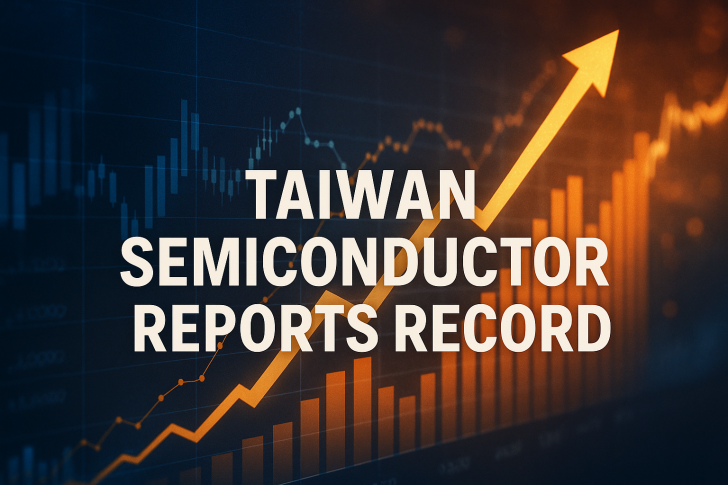Taiwan Semiconductor Manufacturing Company ($TSM), the world's largest contract chipmaker, just posted a record Q3 net profit of $14.76 billion—up 39.1% from last year. The numbers tell a clear story: artificial intelligence is reshaping the semiconductor industry, and TSMC sits right at the center of it all.
What's Driving the Growth
The results caught attention across financial markets. Investor Jesse Cohen highlighted the earnings on social media, pointing to TSMC's raised growth forecast and its increasingly critical role as the infrastructure layer for global AI development.
The surge comes down to one thing: everyone needs advanced chips for AI. From cloud providers building massive data centers to smartphone makers adding AI features, demand for cutting-edge processors has exploded. TSMC's ability to manufacture these complex chips at scale has made it irreplaceable. The company isn't just meeting current demand—it's raised its full-year revenue forecast based on what's coming. As AI spreads into autonomous vehicles, consumer devices, and enterprise systems, analysts see TSMC's pipeline getting stronger, not weaker.
Who's Buying
TSMC manufactures for the biggest names in tech:
- Nvidia ($NVDA) – dominates AI GPUs and depends heavily on TSMC's advanced nodes
- AMD ($AMD) – growing its data center and AI accelerator business through TSMC
- Apple ($AAPL) – relies on TSMC for virtually all iPhone and Mac processors
- Qualcomm ($QCOM) – sources next-generation mobile and AI chipsets from TSMC
- Intel ($INTC) – increasingly outsourcing production as it struggles with its own manufacturing
- Broadcom ($AVGO) – partnering on networking and AI infrastructure chips
These relationships aren't just business deals—they're dependencies. TSMC's technology lead means most of the AI revolution runs on its manufacturing capacity.
TSMC's dominance raises questions beyond just earnings reports. The company's concentration of advanced chipmaking creates both opportunity and risk. Geopolitical tensions, particularly around Taiwan, add uncertainty. Supply chain concentration in one region worries both governments and companies. Yet TSMC's technology leadership remains unmatched. Competitors like Samsung and Intel are investing billions to catch up, but the gap in advanced manufacturing isn't closing quickly.
 Saad Ullah
Saad Ullah

 Saad Ullah
Saad Ullah


